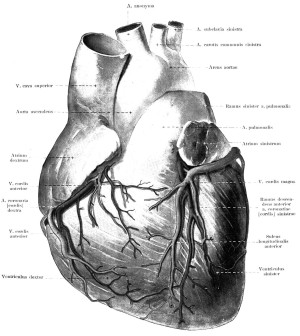- Could Your Grocery Store Meat Be Causing Recurring UTIs?
- Are You Making This Expensive Thermostat Error This Winter?
- Recognizing the Signs of Hypothyroidism
- 10 Strategies to Overcome Insomnia
- Could Artificial Sweeteners Be Aging the Brain Faster?
- Techniques for Soothing Your Nervous System
- Does the Water in Your House Smell Funny? Here’s Why
- Can a Daily Dose of Apple Cider Vinegar Actually Aid Weight Loss?
- 6 Health Beverages That Can Actually Spike Your Blood Sugar
- Treatment Options for Social Anxiety Disorder
Could Parkinson’s Disease Raise Stroke Risk?

A large new analysis suggests there may some type of link between Parkinson’s disease and the risk for stroke.
However, the study can’t prove that one condition causes the other — or even which direction the link might travel, the researchers said.
For example, maybe Parkinson’s somehow raises a person’s odds for ischemic stroke — the type that’s caused by a clot and makes up the vast majority of strokes. Or, it could be that having a stroke weakens the brain, raising the risk that a patient will develop Parkinson’s.
Or, as one expert who reviewed the findings said, a separate, unknown factor might independently link the two conditions.
“There may be some processes that occur with aging that increase the risk of both stroke and neurodegenerative disorders” such as Parkinson’s, said Dr. Andrew Feigin, a neurologist at Northwell Health’s Neuroscience Institute in Manhasset, N.Y.
More study will be needed to unravel the connection, said a team of researchers led by Dr. Benjamin Kummer, of Weill Cornell Medical College in New York City.
In the study, Kummer’s team tracked outcomes for a sample of about 1.6 million U.S. Medicare recipients between 2008 and 2014.
The study found that the incidence of ischemic stroke among those already diagnosed with Parkinson’s was just under 2 percent, compared with less than 1 percent for those who did not struggle with Parkinson’s.
The investigators also looked at the situation from the opposite perspective. They found that among people who had suffered a stroke, nearly 1 percent went on to develop Parkinson’s — compared to less than half a percent of people with no such medical history.
The study also supported evidence from prior studies linking strokes and Alzheimer’s disease. Kummer’s team found that the incidence of Alzheimer’s among patients who had experienced a stroke was more than 3.5 percent. This compared with just over 1 percent for those who’d never experienced an ischemic stroke, the researchers said.
Dr. Ajay Misra is chair of neurosciences at Winthrop-University Hospital in Mineola, N.Y. He said the finding suggests that, for seniors, “both Alzheimer’s disease and Parkinson’s disease [have an] increased incidence of stroke soon after the diagnosis is made.”
Misra stressed that patients can take steps to minimize the risk of stroke and neurological illness, however. “Risk-reduction strategies for both are common — abstain from smoking and excessive alcohol intake, get regular exercise, weight control, control of high blood pressure and the prevention of diabetes,” he said.
The study was to be presented Thursday at the International Stroke Conference in Houston. Findings presented at medical meetings are typically considered preliminary until published in a peer-reviewed journal.
More information
There’s more on strokes and depression risk at the National Stroke Association.
Source: HealthDay
Copyright © 2026 HealthDay. All rights reserved.










